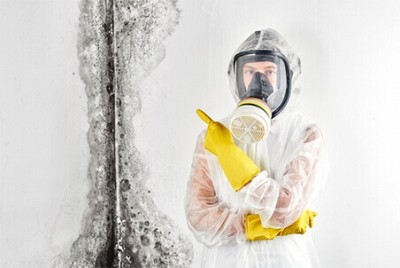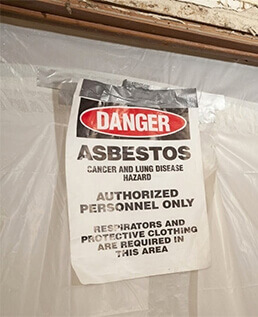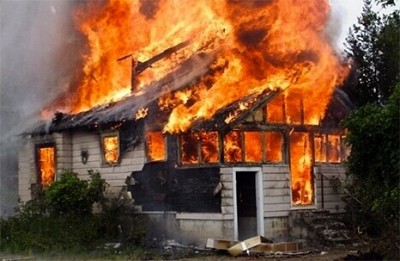The Dangers of Black Mold and What Can it Do to You?
Posted in Mold Removal, on January 31, 2024
Understanding black mold in Toronto requires distinguishing between reality and misconception. It is crucial to grasp the inherent traits of this species and our interactions with it. Mold, as a living organism, exists in numerous variations within the fungi family. Belonging to the fungi family, mold typically thrives beneath substrates that offer optimal feeding conditions, such as soil, building materials, and organic matter. As long as a suitable food source is present, fungi proliferate, preparing for reproduction. In the case of toxic black mold, the reproductive process involves releasing toxic spores into the air, facilitating the growth and spread of new mold, which can be harmful to health if inhaled. Hazardous black mold spreads in environments abundant in damp areas with the necessary nutrients, which are plentiful in residential settings, requiring the need for mold removal in Toronto.
To learn more about the dangers of black mold and what it can do to you, read on!
Some Signs Mold is Affecting Your Health?
.jpg) It has been established that exposure to mycotoxins released by "toxic mold" can lead to health issues. The enclosed environment of such buildings contributes to elevated exposure levels. The symptoms associated with mold exposure can vary among adults, children, and the elderly, regardless of the level of exposure. These symptoms range from general aches and pains to mood changes, sinus conditions, and potentially more severe issues like memory loss. Individuals with pre-existing allergy conditions may experience heightened symptoms due to mold exposure, including sinus congestion, red and watery eyes, dry cough or sore throat, and skin rashes. Mold exposure can also worsen asthma and lung problems for those already at risk. Studies have yet to prove mold exposure leads to cancer.
It has been established that exposure to mycotoxins released by "toxic mold" can lead to health issues. The enclosed environment of such buildings contributes to elevated exposure levels. The symptoms associated with mold exposure can vary among adults, children, and the elderly, regardless of the level of exposure. These symptoms range from general aches and pains to mood changes, sinus conditions, and potentially more severe issues like memory loss. Individuals with pre-existing allergy conditions may experience heightened symptoms due to mold exposure, including sinus congestion, red and watery eyes, dry cough or sore throat, and skin rashes. Mold exposure can also worsen asthma and lung problems for those already at risk. Studies have yet to prove mold exposure leads to cancer.
Signs and Symptoms
People with allergies may be more sensitive to mold than others. If they come into contact with mold, they can experience symptoms such as:
- a runny or blocked nose
- watery, red eyes
- a dry cough
- skin rashes
- a sore throat
- sinusitis
- wheezing
One such health concern is mold poisoning, otherwise known as mycotoxicosis. Other symptoms include:
- body aches and pains
- changes in mood
- headaches
- memory loss
- nosebleeds
However, people rarely report these symptoms, and it is not clear if they have links to mold exposure. In rare cases, mold allergies can cause more severe reactions, including hypersensitivity pneumonitis. Symptoms of chronic hypersensitivity pneumonitis include:
- shortness of breath
- tiredness
- coughing (lasting for weeks or months)
- progressive weight loss
- According to studies, mold exposure may also worsen asthma or lung problems in people with preexisting lung conditions.
Long-term Mold Exposure and Psychological Issues
While extensive research has been conducted on the physical symptoms associated with long-term mold exposure, recent studies have explored the connection between extended exposure to mold and various psychological issues. Although well-documented physical symptoms such as exhaustion, light sensitivity, unexplained weight gain, and hair loss undoubtedly affect mental well-being, additional psychological manifestations of long-term mold exposure have emerged. Instances include reported cases of insomnia, confusion, difficulty concentrating, anxiety, depression, and loss of appetite. Furthermore, these mental health challenges may be heightened when individuals exposed to mold have a history of prior brain injuries. Although much remains to be explored and understood regarding how mold poisoning contributes to these issues, it is crucial to recognize the severity of unaddressed mold exposure.
Is Black Mold Lethal?
There is a common belief that exposure to black mold in Toronto can result in severe illness, potential cancer, or even fatality. While it is acknowledged that black mold, like various other molds, can elicit intense allergic reactions (such as congestion, headaches, itchy eyes, sinus problems, etc.) in sensitive individuals, living with such allergies can be distressing. Thus, in this context, black mold can indeed cause significant health issues for some people. Scientifically, there is no conclusive evidence proving that black mold causes cancer. However, it is established that black mold can induce serious health issues like pneumonia in certain individuals, which may lead to fatalities if recovery is not achieved. The perception that black mold is exceptionally hazardous seems unjust, as pneumonia can be triggered by various factors, including common ailments like colds, flu, and other viral infections. Black mold is confirmed to provoke severe allergies in sensitive individuals, underscoring its impact on health. Adhering to the principle that "no mold, regardless of its colour, should be present in a healthy home" is the most effective way to safeguard oneself and others from mold-related symptoms. If there are suspicions of mold in your home, seeking assistance from Canada Restoration Services for a complimentary quote is recommended.
Finding the Source of Black Mold
Identifying the origin of black mold in your environment involves recognizing its fundamental needs. Similar to any living organism, mold requires both food and water for its sustenance. The issue arises when a minuscule mold spore, essentially an invisible "seed" for mold, settles on a damp organic surface, such as wet wood or drywall. Upon landing, it establishes itself, initiating a process of reproduction. These mold spores are omnipresent in the air, even in the cleanest households, making it inevitable that you breathe in trace amounts with each breath. Black mold in Toronto tends to flourish in areas characterized by dampness and moisture, such as basements, attics, kitchens, bathrooms, or places that have undergone flooding. Given the vast diversity of mold, boasting over 100,000 species, it can manifest in various sizes, shapes, and colours. Identifying the specific type of mold present necessitates professional testing by a certified mold inspection expert like Canada Restoration Services.
Can Cleaning Black Mold Make You Sick?
Discovering mold in your home can be a significant surprise, and the subsequent shock involves identifying the mold type, evaluating the extent of the infestation, and devising a solution. Opting to clean mold independently is an ill-advised decision, indicating a lack of awareness about potential hidden dangers. The recommended course of action is to enlist professional Canada Restoration Services for mold removal in Toronto. Professionals take necessary precautions, possess the appropriate tools and resources, and can safely dispose of the mold. Although not all molds are toxic, even brief exposure to toxic mold can pose health risks. Therefore, relying on professionals for mold removal is crucial. Despite the temptation to save money with a DIY approach, the associated risks make it an unworthy endeavour. Canada Restoration Services ensure a thorough and correct job from the outset. Hiring a Certified Mold Specialist guarantees a safe remediation process from beginning to end. Importantly, after mold removal in Toronto, our specialists have the expertise to safely eliminate debris. This professional approach is essential for optimal results.
Work With The Mold Removal Experts in Toronto
Canada Restoration Services offers professional services, including inspection, testing, and removal. If you suspect mold, it is advisable to enlist the help of a mold removal company like Canada Restoration Services in Toronto. They operate throughout the region, providing swift service, competitive pricing, and guaranteed results. Our experts understand that addressing mold requires more than a quick fix. Complete elimination of the outbreak is crucial to prevent any recurrence. Investing in proper mold remediation from the beginning brings long-term benefits and is a worthwhile expenditure. Opting for a do-it-yourself approach to save money is short-sighted, as the associated risks are not worth it, and the long-term results are uncertain.







